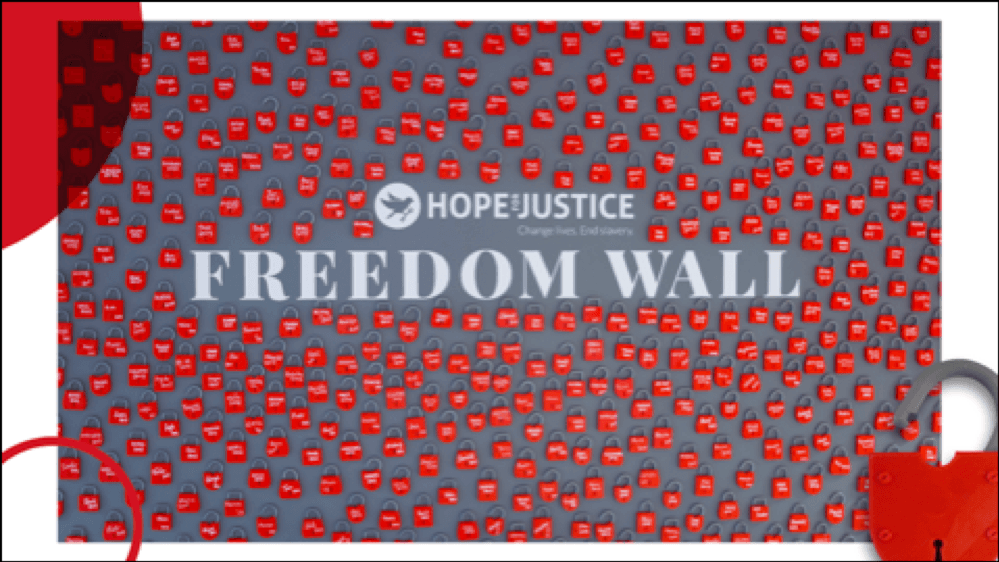I had the privilege of attending CIPD Manchester’s Forum on Modern Slavery and Human Trafficking on 26 June. As a member of the Manchester Branch Committee I support and attend many of the events and this was one that attracted a lot of attention, and rightly so. This is the second of 2 blogs I have written reflecting on the event.
On Wednesday 26 June I attended an event that will stay with me for some time to come. CIPD Manchester ran a Forum on Modern Slavery and Trafficking. The aim was to raise awareness of this growing problem which hides amongst all of us, and to share some very practical information on how to take action.
My first blog, Removing our Blindfolds, covered the shocking facts and figures and included summaries of each of the 3 perspectives we heard. The 3 sketchnotes provided capture the essence of the discussions.
This second blog focuses on 2 things. I wanted to share some of the inspirational work being done to reach the goal set by Ben Cooley, Hope for Justice, of
Eliminating Modern Slavery and Trafficking globally by 2020.
I also wanted to identify some practical actions we can all take. To make this goal possible more of us need to think about Modern Slavery and Trafficking, talk about it and take action to reduce it.
The work being done by Hope for Justice is very inspirational and systemic in its response to the problem. I know that there will be a lot more happening and that other organisations will be involved too. Highlights for me included
- Hope for Justice is now active across 8 different countries, operating with and through many different local partners and organisations to achieve its goal (including national police services, volunteers, investigators, lawyers and outreach)
- Interventions to prevent modern slavery from taking place include: educational programmes which trained 12, 234 people last year and Slave-Free Alliance bringing together organisations like AstraZeneca, Clarks, Arriva and Aviva to develop and share best practice and support the removal of Modern Slavery and Trafficking and related issues from supply chains
- Support for victims ranging from 343,452 meals served last year to 7,469 classes taught at special schools for survivors.
The picture is clearly not all doom and gloom and Ben encouraged us to enjoy making a difference to people’s lives, even when we’re dealing with such a serious subject.
Call to Action
So, how can we all get involved? I’ve suggested a few actions that we can take as Employers, representatives of our organisations, consumers or just as part of our communities.
As Employers we can
- Ensure someone has clear responsibility for this and support them to go beyond complying with the requirements of the Modern Slavery Act 2015. Do what is practically possible to uncover and address any issues or concerns. Modern Slavery and Trafficking can fall between different corporate functions so choose one, then work together to make it happen. Start with your first tier suppliers. Do you know enough about them?
- Raise awareness amongst all of your staff, suppliers and stakeholders. Slave-Free Alliance and Hope for Justice both run education programmes. It’s the informal conversations that often uncover an issue, so the more people who are aware the better.
- Join Slave-Free Alliance to really manage your risk and be part of shaping and sharing best practice around this. They take a highly supportive and considered approach and consumers are starting to demand that this gets more attention.
As Consumers and staff members we can
- Ask ourselves “Is this a fair price?” when we purchase goods and services. If the answer is no we can choose to go elsewhere and this may prevent us adding to the problem.
- Do our own research on companies we are purchasing from, either as individuals or on behalf of our organisation. Are procurement processes being used? Does the company have the right information available on its employees? If it feels like shortcuts are being made in terms of immigration checks, minimum wages or health and safety we need to take some kind of action.
- Talk about it with our colleagues and networks. Most issues are uncovered through informal conversations not formal investigations. Be curious about it, visit sites and suppliers you work with regularly and ask questions about what’s happening and why. If everyone in your network does the same that’s a lot of new conversations about the problem.
As individuals in our Communities we can
- Be observant and to look everywhere for Modern Slavery and Trafficking because it’s not just happening in the industries most associated with it, like car washes and nail bars. Start with reading Spot The Signs of Human Trafficking from Hope for Justice.
- If we are concerned that something isn’t right, report the matter to the Police or to Hope for Justice. They are interested and they will act. You are not wasting people’s time. If someone is in immediate danger contact the Police.
- Find ways to volunteer if you can. You can become a Guardian or get involved in Hope Sunday activities. You can also sponsor the team climbing Kilimanjaro in October 2019 to raise funds and increase awareness.
There is no doubting that this is a complex issue that can present itself where we least expect to find it. The complexity is worrying on 2 counts. It makes it more difficult to identify the right thing to do and it also leads to analysis paralysis as we convince ourselves that we don’t know where to start.
My plea is that you start somewhere. Do one thing that changes your understanding of the problem or that ensures you are not unknowingly adding to it. Then take the next step, and the next one.
